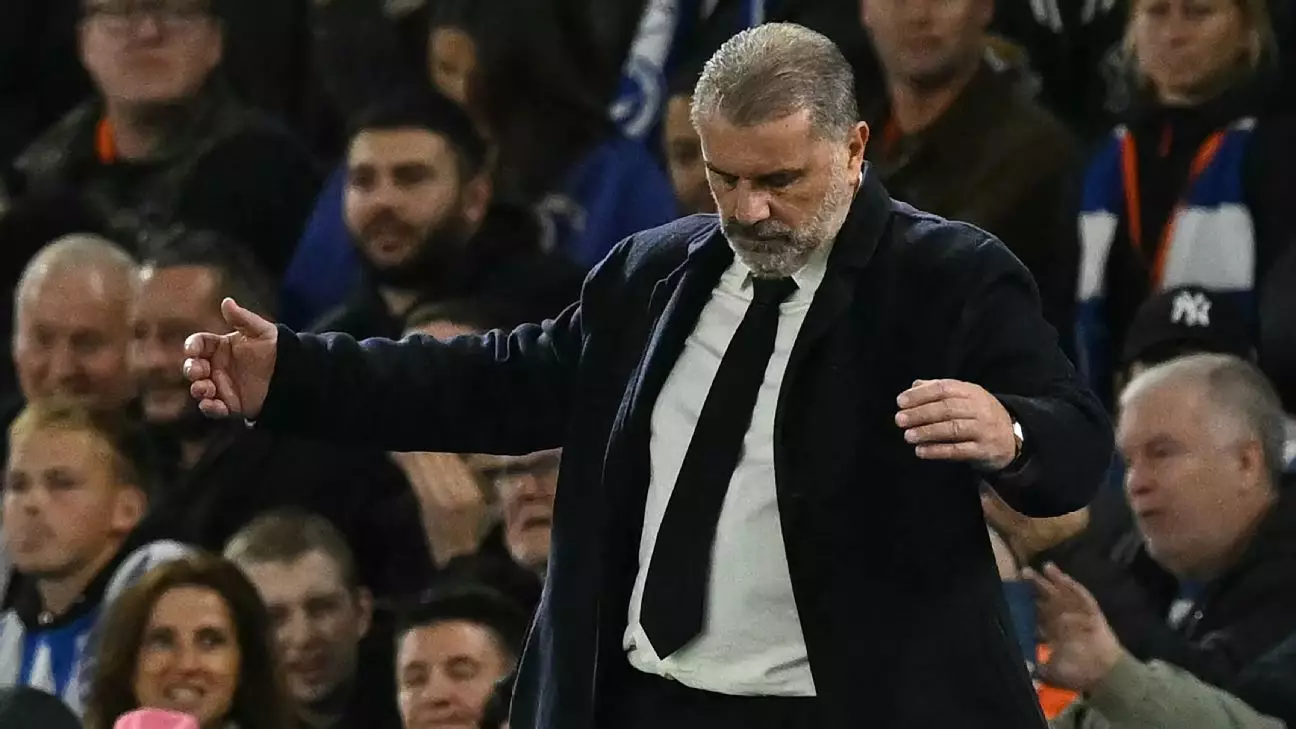Tottenham Hotspur’s recent encounter with Brighton & Hove Albion ended in a troubling 3-2 defeat, marking what manager Ange Postecoglou labeled as his “worst defeat” since taking the reins at the North London club. The match serves not only as a stark reminder of the unpredictable nature of football but as a critical reflection point for a team that appeared to be finding its rhythm prior to this fixture. Postecoglou’s comments underscore a significant theme of accountability, indicating both the psychological and tactical issues that may be at play.
The match began positively for Spurs, who surged ahead with a comfortable 2-0 lead at halftime, owing to incisive goals from Brennan Johnson and James Maddison. However, the narrative quickly shifted in the second half, where the team failed to maintain focus and intensity, allowing Brighton to claw back and seize an unexpected victory. This drastic turnaround illustrates a troubling lapse in concentration and perhaps an inflated sense of security among the players, highlighting that football matches can pivot in a moment.
Postecoglou pinpointed complacency as a critical factor contributing to Tottenham’s downfall. The manager’s statements reveal an essential truth about competitive sports; momentum can foster overconfidence, leading teams to underperform when it matters most. It’s a universal lesson—whether in football or other pursuits—that maintaining a consistent level of effort and focus is paramount. The Spurs’ second-half performance raises concerns about their mental resilience and willingness to adapt during pressure scenarios. Obviously, this stark contrast between halves is alarming and demonstrates that even strong psychological beginnings can dissipate if not carefully managed.
As a result of this defeat, Tottenham’s position in the Premier League has taken a hit, leaving them in ninth place with 10 points after seven matches. The potential to have entered the top four with a win makes their current standing even more disheartening. This situation emphasizes the importance of each match as teams battle not just for points but for pride and identity. For Spurs, the missed opportunity is a call to action; they must refine their approach to ensure that they can capitalize on early advantages in future fixtures.
Postecoglou’s assertion of responsibility for the team’s performance is telling of his leadership style, one that not only demands accountability from his players but also reflects his own commitment to elevate the squad. Addressing these issues proactively during the upcoming international break could be an opportunity for reflection and recalibration for the team. Growth often follows adversity, and Spurs must harness this setback as fuel to improve.
Tottenham’s defeat against Brighton serves as a multi-layered lesson in humility, resilience, and the need for continual awareness in competitive sports. With the right adjustments, both tactically and mentally, the squad can emerge stronger from this experience, setting the stage for future success.

